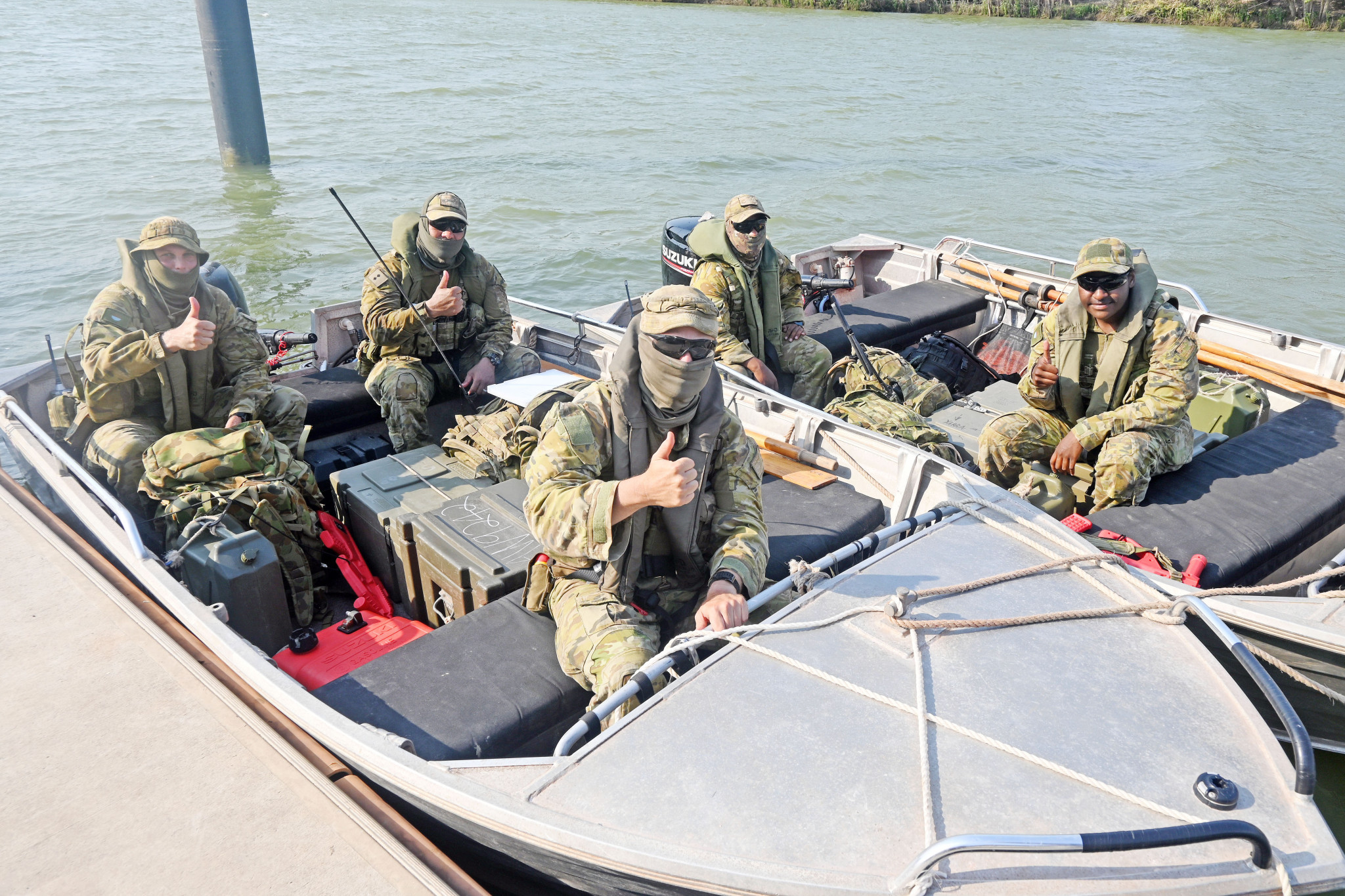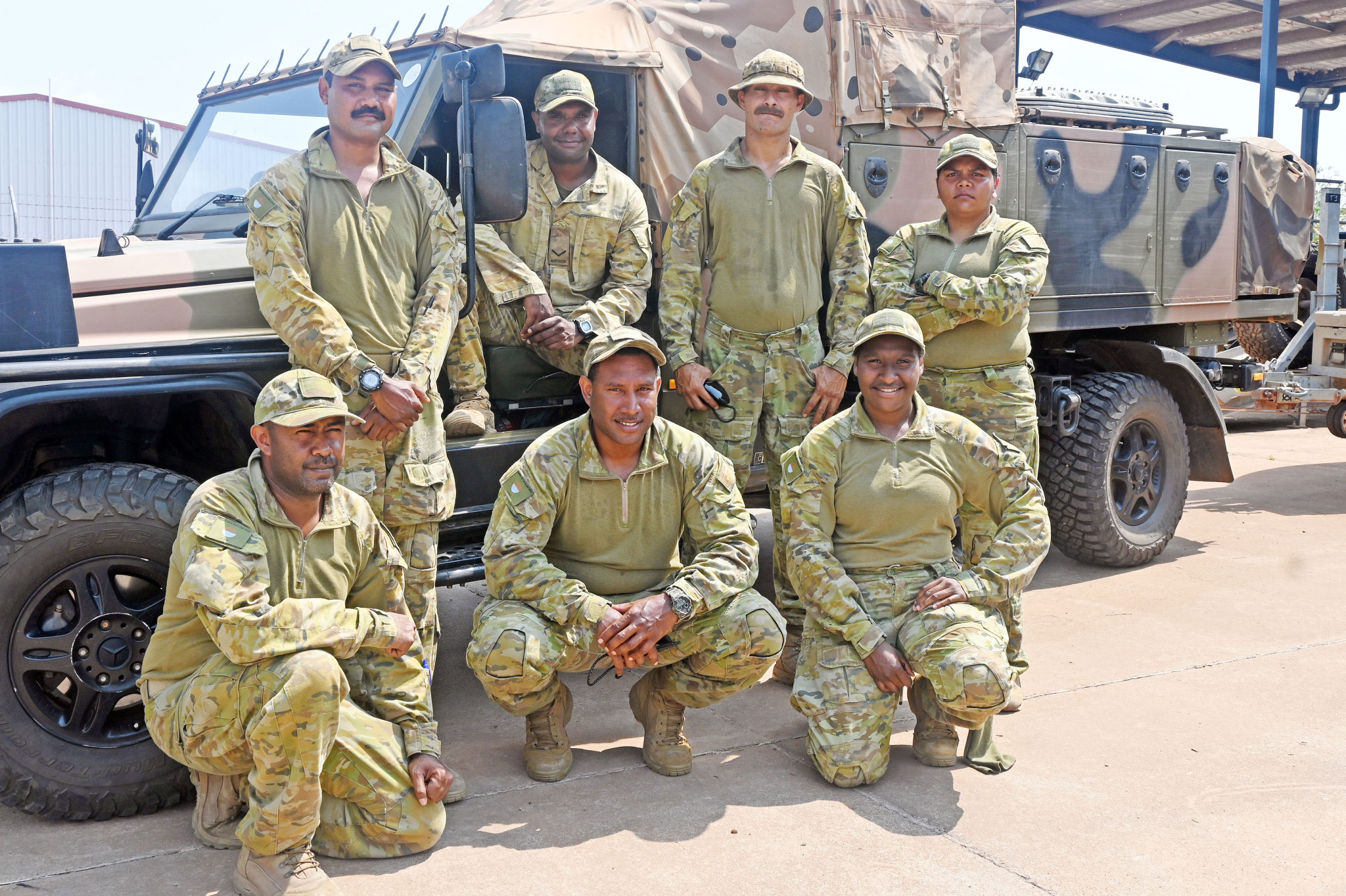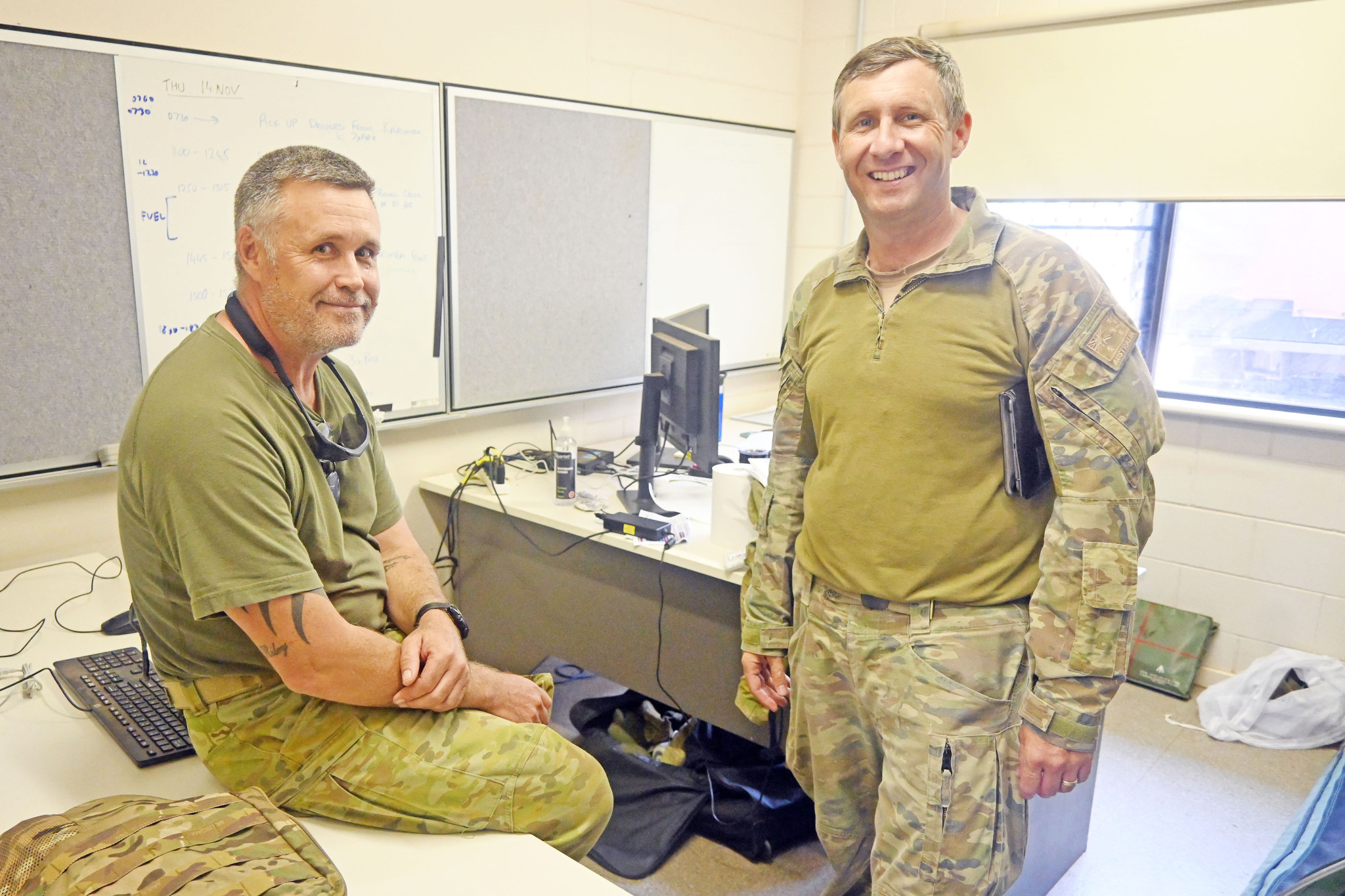General News
20 November, 2024
Reservists train for patrol duties in the Gulf
North West Weekly was invited to Normanton for a first-hand look at the training.

There is a maxim in the army that you soon learn to “hurry up and wait”.
And there seems to be a lot of that taking place at the Normanton barracks of the 51st Battalion when North West Weekly arrives.
The two dozen or so reservist soldiers from across North Queensland have gathered in the Gulf for a two-week-long boat course, as part of their ongoing preparedness in Operation Resolute, which is the primary responsibility of the Australian Army’s 51st Battalion, Far North Queensland Regiment.
The unit is headquartered in Cairns and spans west to the Northern Territory border and north to Cape York and the Torres Strait.
The 51st Battalion is a Regional Force Surveillance Unit (RFSU) with a primary role to conduct reconnaissance and surveillance tasks in support of border security operations.
It is split into four companies, with Delta Company responsible for security surveillance across a 270,000km2 land and sea area that extends from Mornington Island to Croydon, down to Julia Creek and Dajarra, and west to the NT border.
More than 50 per cent of the regiment is Indigenous. Training for reservists is divided into a handful of primary roles – mobility on land vehicles and small water vessels, first aid and signals operations to improve patrolling capability.
The group was in Normanton to learn how to steer small water vessels through a range of military manoeuvres.
But amongst the 40-degree heat, there is a strong wind gust coming down the river system that is delaying the boats from hitting the water.
The boats themselves are not dissimilar to any aluminium tinnie to you might see at Lake Moondarra on the weekend.
However, it is the carrying capacity that becomes most crucial when you realise the soldiers take these boats away for patrols that last up to 10 days.
There are typically five men in a boat – two to control it and three soldiers being transported for patrols – carrying packs weighing up to 60kg each.

This training course between Normanton and Karumba serves a dual purpose – it will allow the regiment to increase the number of soldiers able to use the small tinnies for patrol duties.
However, the regiment is also trialling wider and stronger tinnies that will increase the carrying capacity on board.
Warrant Officer Class Two Martin Prangell, a full-time soldier overseeing the training course, tells North West Weekly that the bigger tinnies will enable the soldiers to carry extra food rations and additional batteries for the radio systems, which means reservists could remain out on patrol for two or three more days at a time.
“Sometimes the guys will have multiple locations to patrol, other times they will establish an observation post and remain in the same location – it just depends on what is needed in that location,” he explained.
“These new boats were taken out and trialled near Cairns not so long ago and the reports came back that they were all good.”
There are two of these newer tinnies and about half a dozen older boats that are taken out on the Norman River during the course.
Eventually, about six hours after originally scheduled, the boats are transported in a small convoy from the barracks, through the streets of Normanton and to the public boat ramp. They are lowered into the water, the soldiers are placed on board and the men prepare for an overnight journey towards Karumba, rehearsing movements to earn their certification.
Army AW139 helicopters are deployed during the mission to rehearse winching injured soldiers to safety while on the water and a large regional support sea vessel is also deployed from Karumba to assist.
